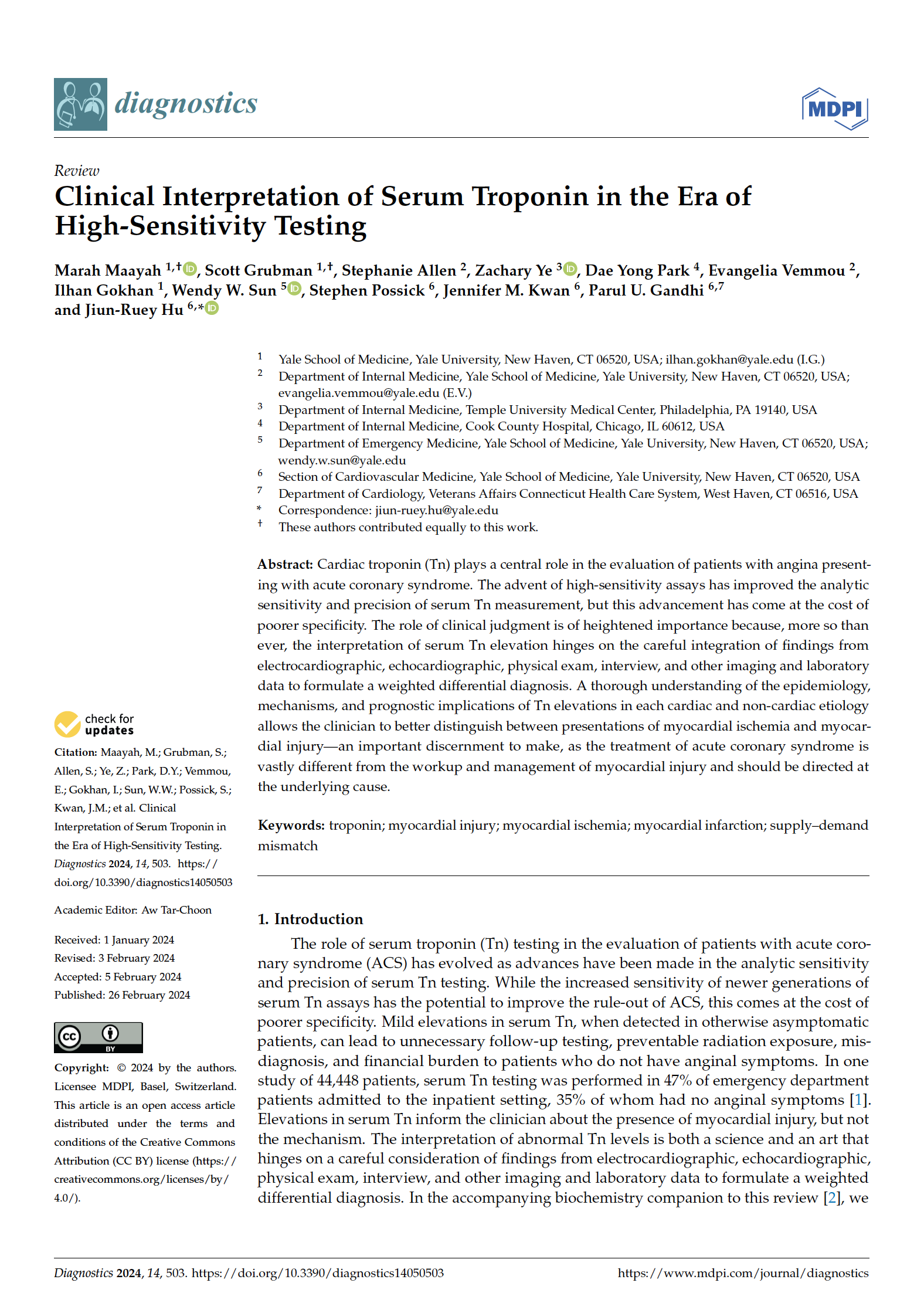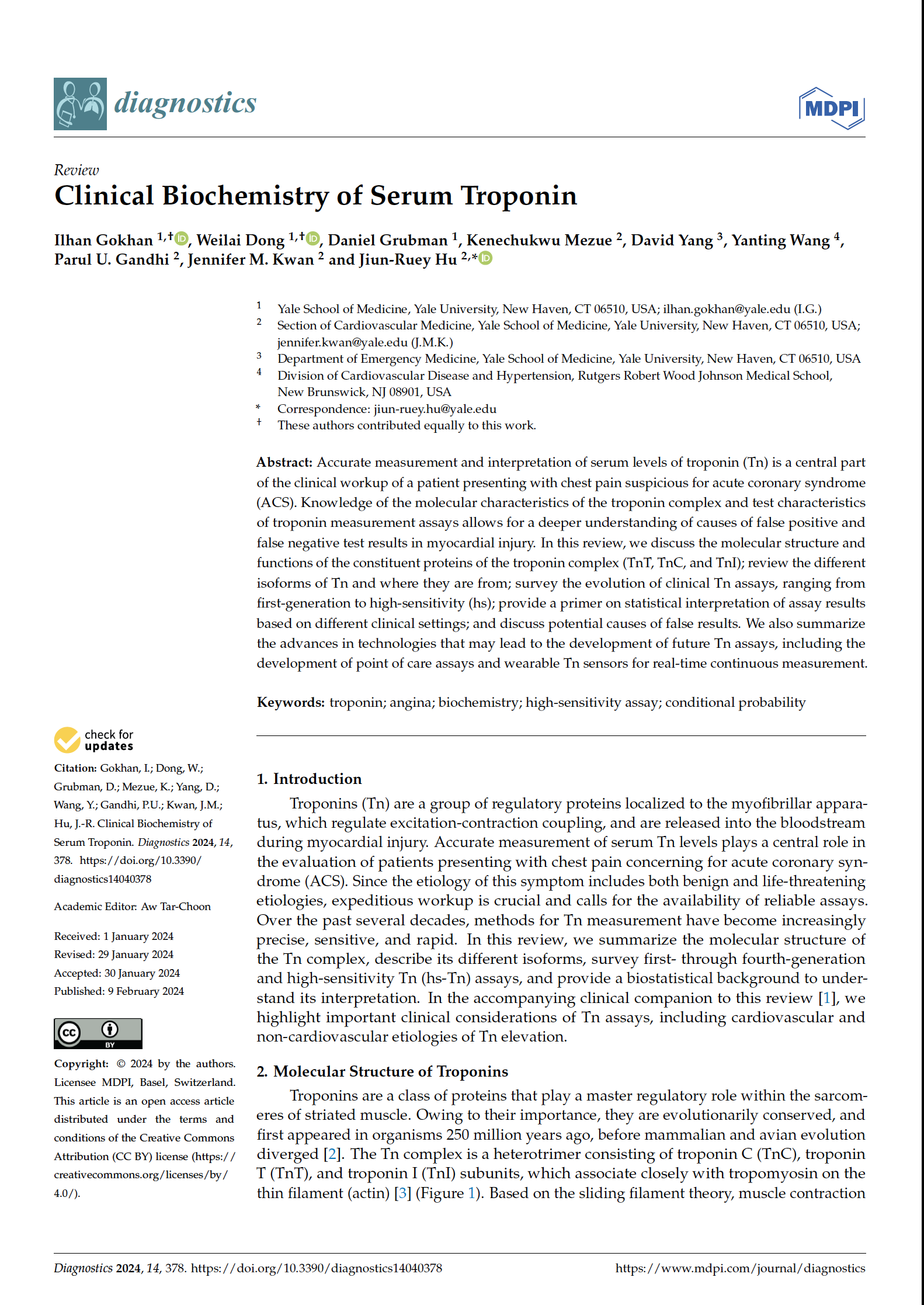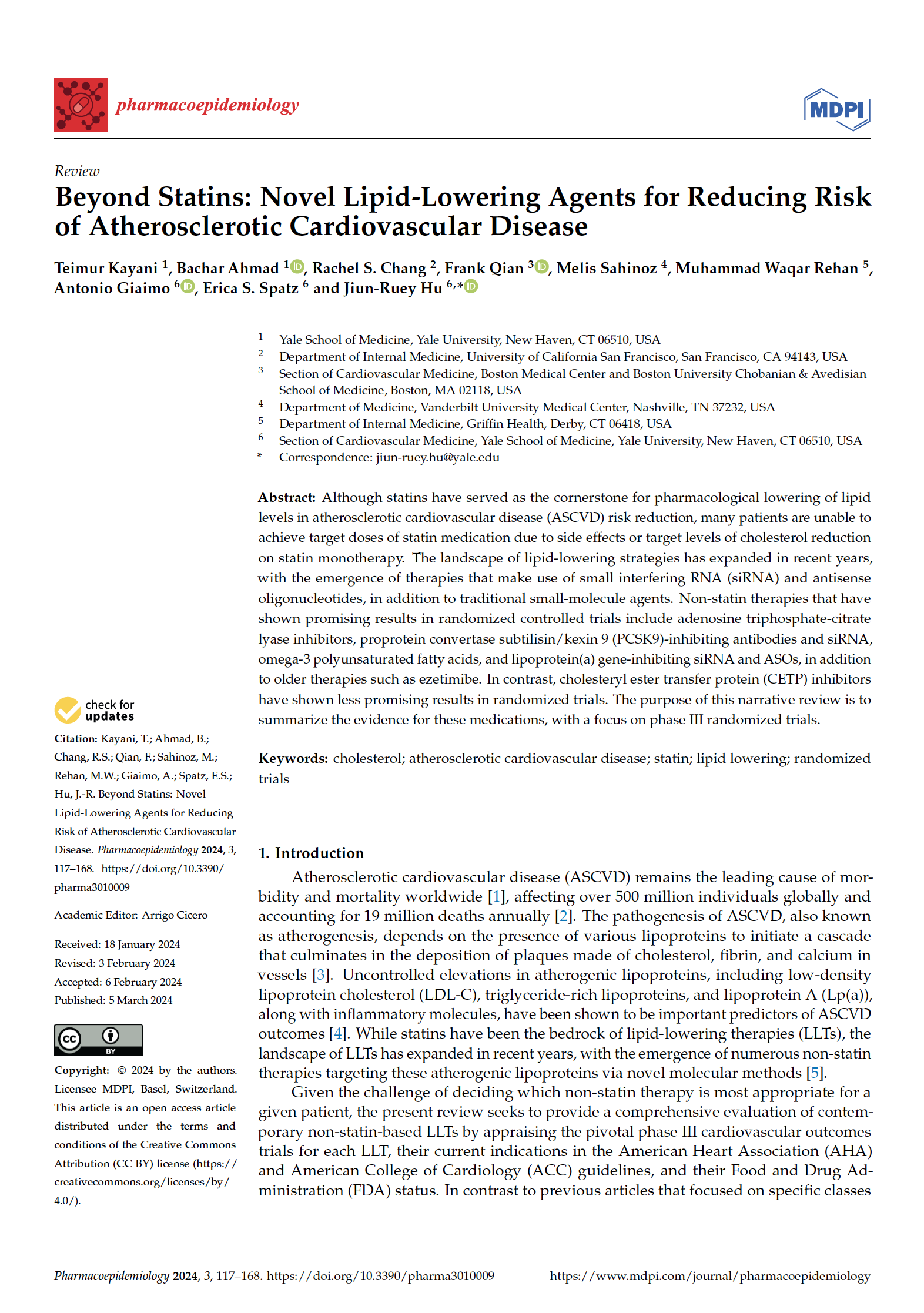📝 Abstract
Cardiac troponin (Tn) plays a central role in the evaluation of patients with angina presenting with acute coronary syndrome. The advent of high-sensitivity assays has improved the analytic sensitivity and precision of serum Tn measurement, but this advancement has come at the cost of poorer specificity. The role of clinical judgment is of heightened importance because, more so than ever, the interpretation of serum Tn elevation hinges on the careful integration of findings from electrocardiographic, echocardiographic, physical exam, interview, and other imaging and laboratory data to formulate a weighted differential diagnosis. A thorough understanding of the epidemiology, mechanisms, and prognostic implications of Tn elevations in each cardiac and non-cardiac etiology allows the clinician to better distinguish between presentations of myocardial ischemia and myocardial injury—an important discernment to make, as the treatment of acute coronary syndrome is vastly different from the workup and management of myocardial injury and should be directed at the underlying cause.


